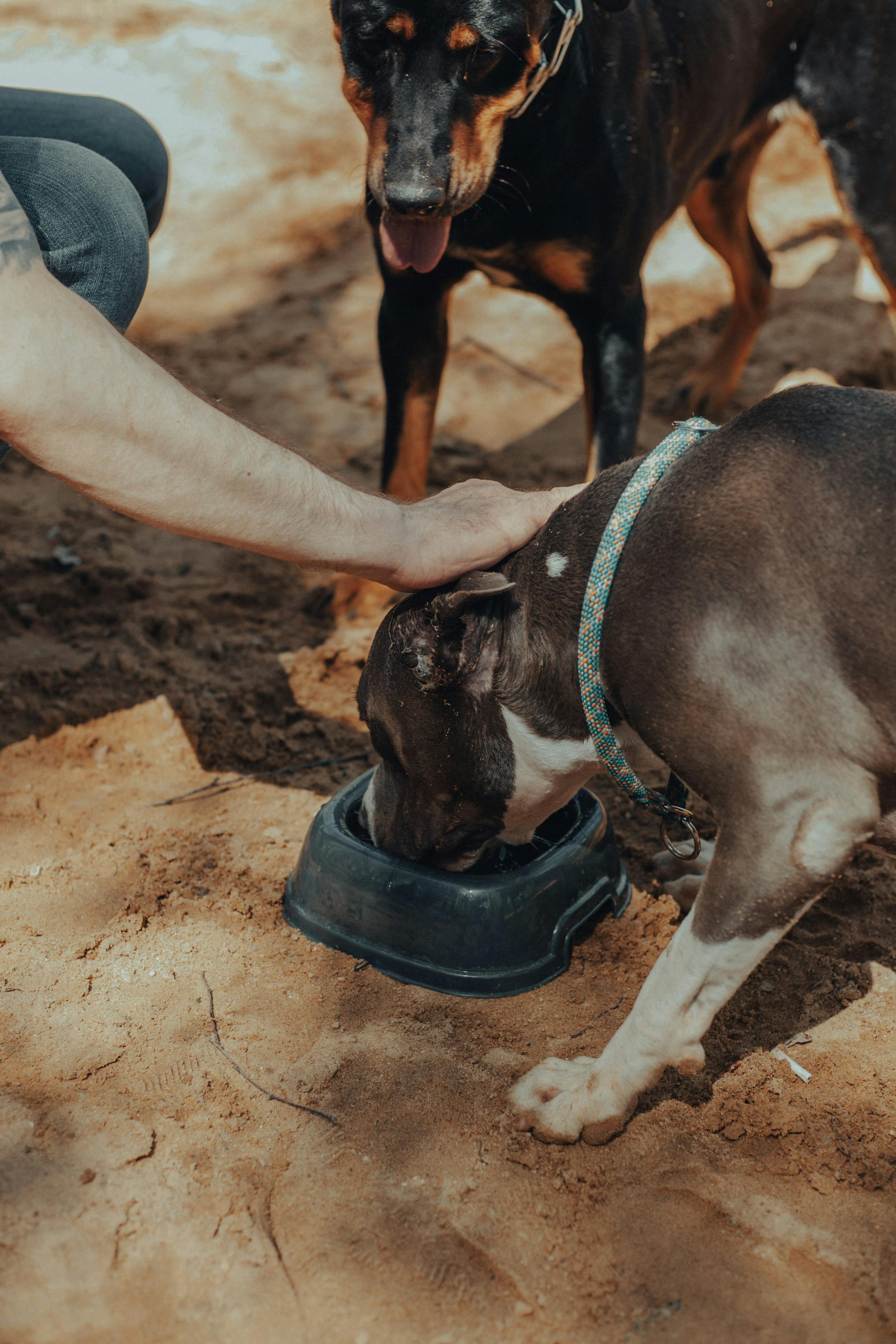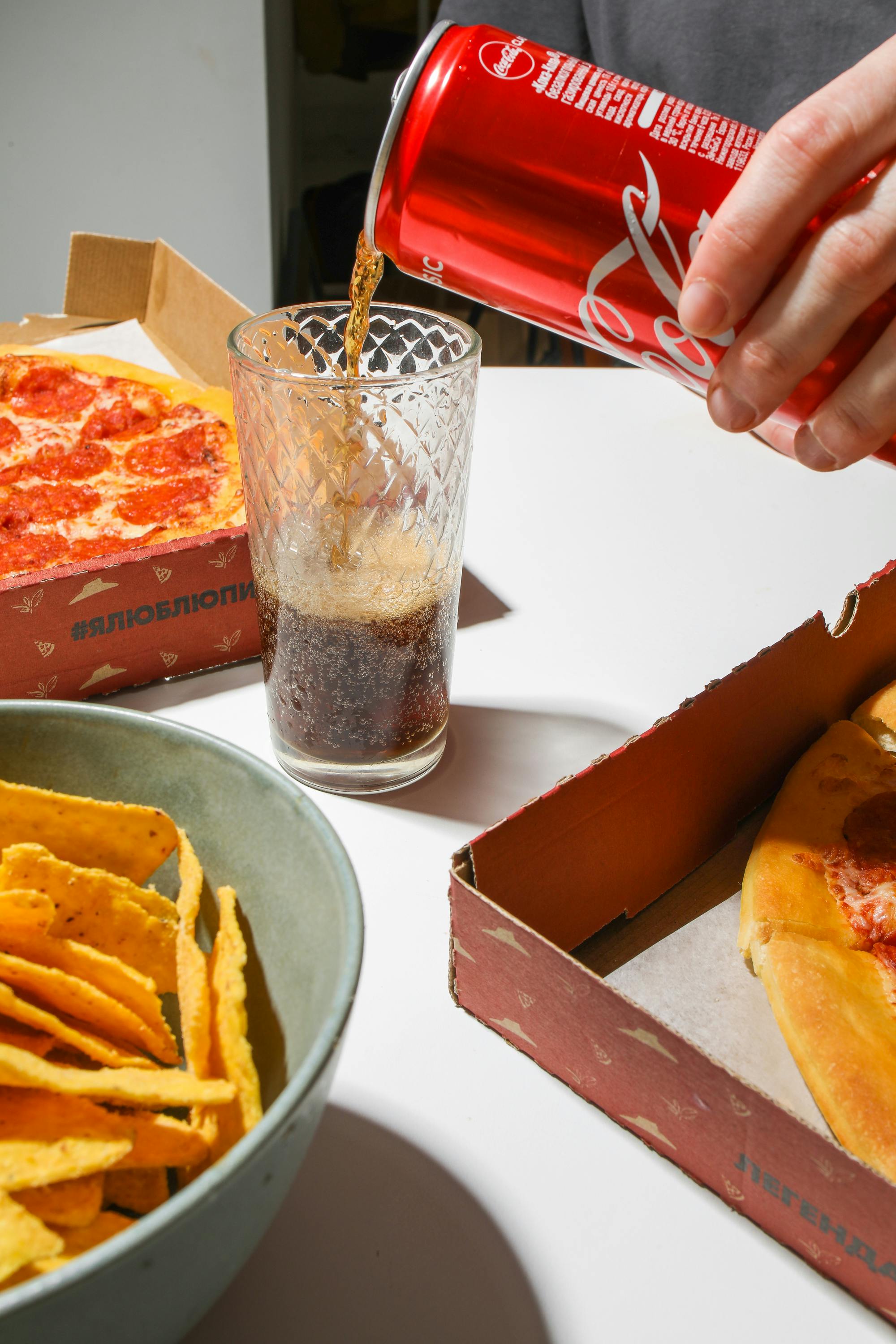Can adding water to dog food cause diarrhea? Yes, it is possible that adding water to your dog’s food can cause diarrhea. Adding too much water to your dog’s food can upset their digestive system and lead to unpleasant gastrointestinal symptoms, including diarrhea.
Diarrhea can be a sign of an underlying health issue or a reaction to something your pup has eaten. If your pup is having bouts of diarrhea, it is important to take them to the vet for a check-up and find the cause.Dog diarrhea is a common digestive problem in dogs. It is usually characterized by watery and loose stools that can range from being mild to severe. In some cases, the feces may contain fresh blood or mucus. Dog diarrhea can be caused by a number of different factors, including dietary changes, infections, allergies, parasites or ingestion of toxins.
It is important to seek veterinary attention if your dog experiences diarrhea for more than 24 hours or if their symptoms are severe. Treatment depends on the underlying cause and may include adjustments to the diet, antibiotics or other medications. In some cases, your vet may also recommend additional tests like fecal exams or imaging studies to determine the cause.
It is important to take preventive measures to reduce your dog’s risk for developing diarrhea such as feeding a high-quality diet and avoiding foods that could trigger an upset stomach. Additionally, it is important to keep up with regular veterinary check-ups and vaccinations in order to reduce the risk of parasitic infections.
Contents
What Causes Dog Diarrhea?
Dog diarrhea is a common problem that can have many causes. Dietary indiscretion, food allergies, parasites, infections and other conditions can all lead to diarrhea in dogs. It is important to identify the cause of the diarrhea so that it can be properly treated.
Dietary indiscretion is when a dog eats something that it should not have eaten. This can include garbage, spoiled food or even human food. Eating something unfamiliar or exotic can also cause problems for a dog’s digestive system. Common signs of dietary indiscretion are vomiting and/or diarrhea.
Food allergies are another common cause of diarrhea in dogs. Food allergies are caused by an abnormal reaction to certain ingredients or types of food. Common symptoms of food allergies include itching and/or skin rashes, vomiting and/or diarrhea, and chronic ear infections.
Parasites such as worms or protozoa are also common causes of diarrhea in dogs. Parasites feed off the host’s nutrients and can cause inflammation, irritation, weight loss and poor absorption of nutrients in the intestines which can lead to digestive issues such as vomiting and/or diarrhea. Common signs that a dog has parasites are weight loss, vomiting, bloody stool and anemia.
Infections from bacteria or viruses can also lead to severe cases of diarrhea in dogs. Common symptoms include fever, lethargy, dehydration and sudden onset of loose stools with mucus or blood present in them. Dogs with very severe cases may need antibiotics or other medications to help treat the infection as well as supportive care such as fluids and electrolyte replacement therapy.
Other conditions such as liver disease, pancreatitis or cancer can also result in diarrheal episodes in dogs due to their effects on digestion and absorption of nutrients from the intestines into the bloodstream for use by other organs throughout the body. If your dog has any type of chronic illness it is important to consult with your veterinarian for further evaluation if your pet is having recurrent episodes of vomiting or diarrhea so they can identify any underlying issues that may be causing these symptoms.
It is important to consult with your veterinarian if your pet is having recurrent episodes of vomiting or diarrhea so they can identify any underlying issues that may be causing these symptoms and provide treatment accordingly..
The Link Between Water and Dog Diarrhea
Water plays an important role in the digestive health of dogs. When it comes to their diarrhea, having access to clean, fresh water can help keep them healthy and prevent them from becoming ill. Without sufficient water intake, dogs can become dehydrated, which can lead to diarrhea and other gastrointestinal issues.
It’s important to ensure that your pet has access to plenty of fresh water at all times. Dogs that don’t drink enough water may suffer from dehydration, which can lead to electrolyte imbalances that can cause diarrhea. Dogs also need water for their digestion process; without it, food won’t break down properly in their stomachs, leading to diarrhea.
In addition to providing your pet with plenty of fresh water, it’s also important to make sure that the water is clean. Water that is contaminated with bacteria or parasites can cause gastrointestinal issues in dogs, including diarrhea. Make sure you regularly change out your dog’s water bowl and provide them with clean drinking water on a daily basis.
Finally, make sure you are aware of any signs of dehydration in your pet. If your dog is not drinking enough water or appears lethargic or dehydrated in any way, contact your veterinarian right away for advice on how best to treat them. With proper hydration and clean drinking water, you can help keep your pet healthy and free from digestive issues such as diarrhea.
Benefits of Adding Water to Dog Food
Adding water to your dog’s food can provide many benefits to their health and wellbeing. It can help to improve digestion, hydrate the body, and make the food easier to eat. It also helps to reduce the risk of choking or bloating. Additionally, adding water can help the dog feel fuller for longer and can aid in weight management.
One of the main benefits of adding water to a dog’s food is that it helps them stay hydrated. Dogs need plenty of fluids each day, and supplementing their diet with wet food can help ensure they get enough. This is especially important during hot weather or when they are more active than usual. The extra moisture in wet food also helps dogs digest their food more easily, as it breaks down quicker than dry kibble.
Another benefit of adding water to dog food is that it makes it easier for older dogs or puppies to eat. Soft foods are much easier for them to chew and swallow than crunchy kibble, which can be difficult for some dogs to manage. If you have an elderly pet or a puppy, adding some water will make their mealtime much easier and more enjoyable.
Adding water can also help prevent choking or bloating in dogs that tend to gulp down their meals too quickly. When a dog eats too fast, they don’t take the time to chew properly and can end up swallowing pieces of kibble whole which can lead to choking or bloating. But when the kibble is mixed with some water it becomes softer and easier for the dog to chew properly.
Finally, adding water can help keep your pet feeling full for longer after eating a meal. The added moisture goes a long way towards helping them feel satisfied after eating so they don’t need as much food overall. This can be beneficial in helping manage your pet’s weight if they are prone to overeating or gaining too much weight.
In summary, there are many benefits of adding water to your dog’s food including improved digestion, hydration, preventing choking/bloating, making it easier for older pets/puppies to eat and aiding in weight management. With all these benefits taken into account, it’s easy to see why adding some extra moisture is always a good idea when feeding your four-legged friend!
How Much Water Should be Added to Dog Food?
When it comes to feeding your dog, it is important to consider how much water should be added to the food. Dogs need plenty of hydration to stay healthy, and adding water to their meals can help keep them hydrated. The amount of water that should be added depends on the type of food that you are giving your dog.
For dry dog food, it is recommended that you add enough water so that the food is moist but not soggy. This will help ensure that your dog gets enough moisture and nutrients from their food. You may need to experiment a bit to find the right balance for your pet’s needs.
For wet or canned dog food, it is usually not necessary to add additional water as the food already contains some moisture content. However, if you do choose to add more water, make sure that you are not diluting the nutritional value of the food too much.
Adding an appropriate amount of water to your pet’s meal can help ensure their long-term health and well-being. Be sure to consult with your veterinarian before making any changes in your pet’s diet or hydration levels. They will be able to provide advice and guidance on how best to feed and hydrate your pet for optimum health benefits.

Adding Water to Dog Food: Advantages and Disadvantages
Adding water to dog food can be beneficial for a number of reasons. It can help dogs stay hydrated, provide additional nutrients, and help digestion. However, there are some potential disadvantages to this practice as well.
One advantage of adding water to dog food is that it helps keep dogs hydrated. Dogs require plenty of water in their diet, and adding a small amount of water to their meal can help ensure they’re getting enough liquid. Additionally, the extra moisture may help enhance the flavor of the food, making it more appealing to picky eaters.
Another benefit is that adding water can increase the nutritional content of the meal. For example, if you’re using kibble or dry food, adding a bit of water can help rehydrate it and make it easier for your pup to digest. Adding a bit of broth or a low-sodium bouillon cube will further increase the nutritional value by providing additional vitamins and minerals.
However, there are some drawbacks to adding water to dog food as well. For one thing, if you’re using canned or wet food then adding additional liquid will dilute the nutritional content. Additionally, too much water can cause your pup’s stomach to become bloated or upset which could lead to digestive issues or vomiting. It’s important not to add too much liquid; just enough so that your dog’s meal is moist but not soupy.
Overall, adding some water to your pup’s meals can be beneficial in some ways but it’s important not to overdo it as this could cause digestion problems or other health issues. Talk with your vet before making any changes so they can advise you on how much liquid your pup should be getting each day.
Diarrhea After Eating Water-Added Dog Food
If your dog has diarrhea after eating water-added dog food, the first step is to contact your veterinarian. Diarrhea can be a sign of a serious medical condition and it is important to get the proper diagnosis and treatment for your pet. Your vet may recommend an adjustment in diet or additional tests to rule out any underlying conditions.
In addition to contacting your veterinarian, there are several steps you can take to manage your pet’s diarrhea:
- Feed smaller portions of water-added dog food more frequently throughout the day.
- Avoid treats or table scraps as these can disrupt digestion.
- Make sure your pet has access to clean, fresh water throughout the day.
- Encourage activity and regular exercise, as this will help support healthy digestion.
It is also important to monitor your pet’s symptoms and contact your vet if they don’t improve within 24 hours. In some cases, medication may be needed to reduce inflammation and promote healing in the digestive tract. If you have any questions or concerns about managing your pet’s diarrhea after eating water-added dog food, don’t hesitate to reach out to your veterinarian for advice.
Is it Safe to Give My Dog Wet Food from a Can?
Wet food from a can is generally safe for dogs, as long as there are no added preservatives or unhealthy ingredients. Canned food can provide an excellent source of protein, vitamins, minerals and other nutrients for your pooch. Most canned dog foods are fortified with essential vitamins and minerals that can help keep your pup healthy and active.
Canned food is also a great option for dogs with sensitive stomachs or digestive issues. The moisture content makes it easier to digest than dry kibble and can also help keep your dog hydrated. It’s important to check the label of the canned food you’re feeding to make sure there are no harmful additives or preservatives, as well as any potential allergens that could affect your pup’s health.
When choosing wet food from a can, you should also look for one that is specifically designed for dogs. Many human foods may be too high in fat or sugar, and could cause digestive complications or other health problems. Additionally, some wet pet foods contain fish oils, which can be beneficial in certain cases but could lead to allergies in other breeds of dogs. To ensure your pup is getting all the necessary nutrition he needs, consult with your veterinarian about the best type of canned food for him.
It’s also important to remember that wet food from a can should only be given in moderation – wet pet food contains more calories than dry kibble does, so it’s best not to overfeed your pup. Make sure you’re following the portion sizes suggested on the product label and monitoring your dog’s weight regularly so he stays at an optimal size and weight range.
Overall, wet food from a can is generally safe for most dogs when given in moderation and with no added preservatives or unhealthy ingredients. Be sure to consult with your veterinarian before making any changes to your pup’s diet and always follow package instructions when feeding him canned pet food.

Conclusion
In conclusion, it is possible for adding water to dog food to cause diarrhea. If a dog is having problems with digestion, it is important to assess their diet and see if any changes need to be made, such as reducing the amount of water added to their food. It is also important to watch for any signs of dehydration and ensure that the dog has access to plenty of fresh water. Lastly, if diarrhea persists or worsens after adjusting the water intake in their diet, it is important to speak with a vet about the issue.
Overall, adding water to dog food can be beneficial in some cases by making meals easier for dogs to digest and helping them stay hydrated. However, it is important not to overdo it as it can lead to adverse effects such as diarrhea.





